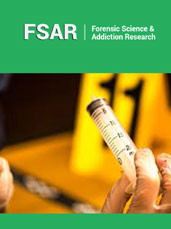In What Another Case Does the Non-Applied the Principle Non Reformatio in Peius? by Jorge Isaac Torres Manrique* in Forensic Science & Addiction Research_ International Journal of Forensic Sciences

Abstract
The principle non reformatioin peius, also known
as the prohibition of the reform in worse or of pejorative reform, it is
constituted in a guarantee of the procedural part that appeals of a decision in
first instance. Thus, we have that principle: “(...)has its origin basically in
the criminal procedure system, and that implies, that the legal consequence of
a person (for any of the penalties of such system) can not be increased if the
convicted person asks for the revision of it”.
In this sense, it should be noted that in
respect of the various exceptions to the application of the aforementioned
principle, in this installment we will refer to a different one, one that is
related basilarly to the principle of legitimacy. In that order of thought, we
refer specifically to the assumption where the penalty or sanction applied in
the first instance (whether in jurisdictional or administrative sanctioning
venue), is willing, notoriously and unreasonably, well below that determined by
law.
We consider that in this case it is not
appropriate to appeal the embrace or protection of the principle non reformatioin peius, in case
of having appealed against it. This in virtue, that this principle finds its
foundation and quintessence in the legitimacy of having been the object of the
amount of a penalty or sanction established by law, that is, having as its
budget the strict observance of the principle of legality. As examples we can
refer (we will use extreme cases in order to make the basis of our proposal
more evident):
1. The case of serious misconduct at the
administrative level, the same one that involves a dismissal sanction, but
which nevertheless, has incredibly received as a sanction a suspension of five
days, and
2. When the accused has committed an offense for
which he had a penalty of fifteen years and that inexplicably, has received by
penalty, one year of imprisonment not effective.
So, we argue that the principle non reformatio
in peius, should not unimismance
to sanctify manifest illegality, where in good romance the return to the law is
taken with an air of championship [1]. In addition, we consider that the nature
of the principle non reformatio in peius, is to become the guardian of legal
security, of legality, of the legal system, of legality and of legitimacy; as a
principle that is. Ergo, its application in no way should contravene them.
https://crimsonpublishers.com/fsar/fulltext/FSAR.000597.php
For
more Open access journals in Crimson Publishers,
Please
click on the link: https://crimsonpublishers.com/
For
more articles in International
Journal of Forensic Sciences,
Please
click on below link: https://crimsonpublishers.com/fsar/
Follow
On Publons: https://publons.com/publisher/6342/crimson-publishers/
Follow
On Linkedin: https://www.linkedin.com/company/crimsonpublishers/
High
impact journals in Crimson Publishers?
https://www.quora.com/What-are-the-high-impact-journals-in-Crimson-Publishers
Crimson
Publishers Journals
https://crimsonpublishers.com/
https://crimsonpublishersresearch.com/



No comments:
Post a Comment